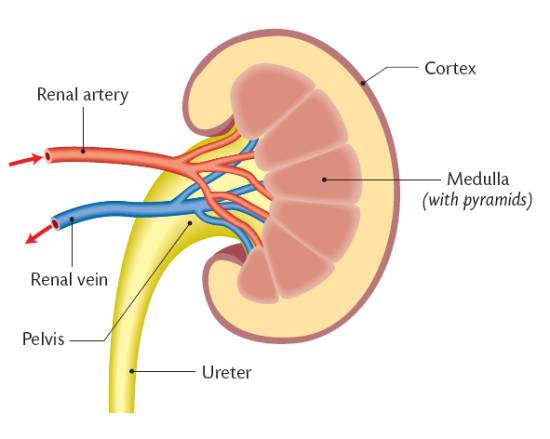Starting from what excretion is, excretion is the process by which animals rid themselves of waste products and of the nitrogenous by-products of metabolism. Through the process of excretion, organisms control osmotic pressure that’s the balance between inorganic ions and water and maintain acid-base balance. This process promotes homeostasis, the constancy of the organism’s internal environment. The following terms are used with waste-disposal processes and are sometimes used interchangeably, but not always correct: excretion, secretion, egestion, and elimination. And excretion is a general term meaning the separation and throwing off of waste materials or toxic substances from the cells and tissues of a plant or animal  .
.
This waste products in the body of animals which is named excreta pass through many processes apart from kidneys, organs like lungs, liver, skin, and sebaceous glands also help in the excretion process, looking at them one after the order.
Sweat glands:– These are long tubular glands and are coiled at the ends. They are found in the dermis of the skin and help in maintaining body temperature. During summers when it is too hot outside, sweat, that is a watery fluid containing lactic acid, urea, sodium chloride, is secreted from the sweat glands and assists in cooling the body.
Skin role in excretion
Lungs:- Lungs are mainly concerned with respiration but they assist in the removal of a large volume of carbon dioxide and water from the body through the air that we expire. Carbon dioxide is a bye product formed due to oxidation of food. It is transported to the lungs by blood. So it can also be considered as an organ that is involved in the process of excretion.
Liver:- Next is the liver that’s the largest gland in the body. It secretes bilirubin, biliverdin, vitamins, drugs. Substances containing bile. Bile pigments are formed by the breakdown of hemoglobin in the worn-out red blood cells in the liver. These are eradicated from the body and the organ helps in excretion. The liver also assists in the conversion of ammonia into less toxic urea.
There is another gland one called the sebaceous gland which terminates substances like sterols, hydrocarbons, and waxes through sebum. The glands are attached to the hair follicle. The lower intestinal tract also assists in the excretion by removing the waste products of digestion. The above-explained organs also play a significant role in the excreta process because without this organs the process may be difficult.